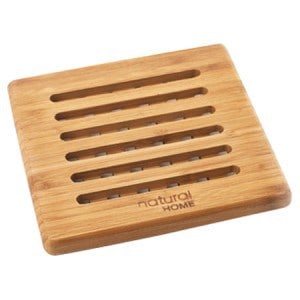A Delicacy Worth Singing About: Brazilian BBQ in Music
Long ago, when they roamed the pampas engrossed in their solitary toils, having only their horse for company, the gauchos developed a love of music as a means to alleviate their loneliness. The musical style they produced—called rancheira gaúcha—lives on in the Southern portion of Brazil, especially in the state of Rio Grande do Sul. So to many people in that region, churrasco is incomplete without traditional music to accompany it.
Originally, rancheira songs were played on stringed instruments, such as the guitar. The accordion (gaita, in Portuguese), later added to complement the musical arrangements, eventually gained so much prominence that the gaiteiro (accordion player) became the center of attention at dances. Song lyrics generally revolve around the traditional gaucho lifestyle, as well as the themes of loneliness and love, resorting heavily to regional vocabulary (which usually makes it hard for people from other regions in Brazil to understand them).
Would you like to have some rancheira playing during your next churrasco? You might start with this song about churrasco by Grupo Rodeio, one of my favorite regional bands. Below is my humble attempt at translating the lyrics into English, along with footnotes to clarify the meaning of some terms.
https://www.youtube.com/watch?feature=player_embedded&v=Wi_ORewoMDs
Iguaria Campeira |
Delicacy of the Fields |
|||||
| Ao longuear a carne gorda de um churrasco malpassado | Cutting along the fatty, rare churrasco meat | Dou um tombo na farinha pra enxugar o sangue escaldado | I topple it onto the flour[1] | |||
| Oiga-lê, boia campeira pra um estradeiro estropiado | Oiga-lê,[2] grub of the fields for an exhausted roadman. | |||||
| No engraxar do bigode, golpeio a guampa de canha | When greasing my mustache, I hit the canha horn[3] | |||||
| Dando um tempero especial às refeições da campanha | Adding a special flavor to the meals on the pampas | |||||
| (REFRÃO)Bamo encostando a carreta, talhando espeto em taquara | (CHORUS)Let’s pull over the wagon, carve out skewers on bamboo. | |||||
| Campeia a lenha pra o fogo, espeta o chibo nas vara | Seek out wood for the fire, skewer the chibo[4] | |||||
| Apruma a trempe pra o mate, aquenta o arroz carreteiro | Set up the trivet[5] for the maté,[6] heat up the carreteiro rice. | |||||
| Depois, de bucho chinchado, seguimo estrada parceiro | Afterward, with our bellies cinched, we hit the road, my partner. | |||||
| Picando a manta de charque, arroz na panela preta | Chopping the jerky strips, rice in the black iron pot[7]. | |||||
| É receita à moda antiga, no rangido da carreta | An old-style recipe, with the creaking of the wagon. | Mateando e contando causos de bailantas e carpetas. | Having maté and telling tales of dances and gambling houses. | No engraxar do bigode, golpeio a guampa de canha. | Dando um tempero especial às refeições da campanha. | Adding a special flavor to the meals on the pampas. |
Translations..
[1] Flour: Cassava flour; in the context of churrasco, often referred to as farofa. It’s a common practice to “rub” a piece of meat, sausage, or chicken heart on cassava flour before eating it, in order to reduce the sensation of fat in one’s mouth.
[2] Oiga-lê: An interjection to express joy, surprise and admiration. So perhaps similar to Yahoo.
[3] Canha horn: The gauchos traditionally used bulls’ horns as bottles and cups. And Canha is another word (borrowed from the Spanish caña) for cachaça which is a Brazilian distilled spirit made from sugarcane juice.
[4] Chibo: A young male sheep or goat, less than a year old. Or a goat not castrated. The use of this term reminds us that mutton and lamb are also common choices of meat for churrasco in Rio Grande do Sul.
[5] Trivet:

[6] Maté: A tea brewed from the leaves of the holly tree. Best known in Rio Grande do Sul as chimarrão.
[7] A description of the preparation of carreteiro rice.
